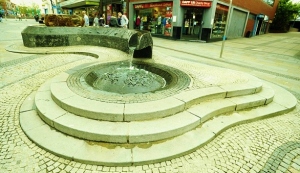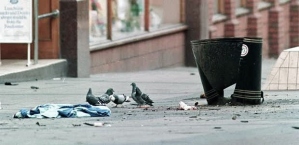
Source: The Independent
The last few days have been dreadful. Yet amongst the hatred is a shining light of hope and reassurance. The people of Manchester and far further have come together. Political leaders have stopped the mud-slinging contest of the general election (for now). For me, one of the phrases that has stuck with me comes from Colin Parry OBE. On the topic of terrorism, we need to prevent gaps widening in our society, encourage diversity at a local level, and in response to the calls to ‘throw them out our country’, Mr Parry says no. ‘Throw them in to our peace centre’ he says.
This is a man who has experienced what many of the Manchester victims’ families will be experiencing. It’s difficult for anyone to comprehend the barbaric loss of a child, teenager, young adult, mums and dads, who were simply enjoying life. For Colin Parry, the story is similar. His son, Tim Parry, was one of the victims of the Warrington IRA bomb attack in 1993. His accounts are well documented as are his natural emotional responses in the aftermath of the attack.
The Foundation for Peace, set up by Colin Parry and his wife Wendy, was in response to attempts to bring peace to a troubled Northern Ireland in the 1990s. Since then, there has been an evolution of peace brought to the streets of Northern Ireland; the threat of terrorism has not gone away. For so many young people, the events of the 2000s and 2010s has seen the shift of how terrorist atrocities are carried out. Colin Parry is the embodiment of peace and this is how the foundation describes what it does:
“We do not take sides, we are not aligned to any conflict, we are not faith or political based and we do not pursue causes such as justice or truth.”
At first glance, it may seem undue for such an organisation not to seek the truth. But tackling terrorism and extremists is not about truth. The great work of the Greater Manchester police force will deal with investigating the truth and seeking some sort of comfort and justice for the families affected – notably by unraveling the network of terrorist connections.
Colin Parry is a man who speaks compassionate sense in difficult circumstances. As does Andy Burnham, Metro Mayor for Greater Manchester. Both appeared on the BBC’s Question Time in the days after the Manchester bomb. It wasn’t about taking sides or showing how political parties will respond. It was about coming together, uniting, and pausing to understand how peace can be achieved.
All panelists on that edition of Question Time were in large agreement. Tackling terror plots requires more than simply shutting Britain’s borders and hoping such cowards don’t find their way in. The police and intelligence services will already be foiling terrorist activity as you read this – and the work they do which we are not fully aware of is something that we should be thankful for.
So how do you stop or flush out terrorist activity? Well it’s difficult. As the panelists on Question Time agreed it comes down to the ‘grassroots’ of communities across the United Kingdom. The terrorist who brought Manchester together in its darkest period was a student at a local university; he lived in Greater Manchester’s suburbs; he was born in the UK just like millions of others. Yet he turned on his own city, targeting the youngest and most innocent. It is not for me to judge what he did in the weeks, months, possibly years, in the run up to the attack. What is almost certain, however, is that somewhere along the line he was radicalised. His behaviour probably changed, his thoughts and perspective more than likely differed from those he previously had. His brain became washed with this evil. There is no finger pointing to be had either as to who could have stopped him and so on. It simply does not assist the situation at this time.
Britain is now a multicultural, multinational island of communities. Everyone, from religious groups to the average atheist college student, has a duty to be vigilant. It may be difficult to identify a change in someones behaviour which may indicate they are identifying with extremist views. That is where Colin Parry and his peace centre come in.
The Foundation for Peace works on the following stages:
- Transforming communities
- Advocacy – training people to raise the difficult issues
- Sharing experiences – the charity is a safe environment for people to come and share their backgrounds and gain support.
- Dialogue – a crucial communication link between conflicting parties to help understand eachother and challenge prejudices
- Conflict resolution – understanding why conflict happens and how it can be dealt with a non-violent way.
- Leadership – allowing people to take back their skills to their own communities.
The Peace Centre in Warrington exists as a result of bereaved parents who came back from a troubled Northern Ireland full in the knowledge that they could make a difference. The threat of terrorism is very much a different scale to that of when The Foundation for Peace was set up. But that doesn’t mean its values, ethics and purposes should be any different.
The Peace Centre can teach anyone, those who need help or those who simply want to learn. It is not about alienating people, it’s not about making assumptions, it’s not about segregating communities. There may be little comfort for the city of Manchester at present but on this truly awful week, people like Colin Parry and organisations like The Foundation for Peace are needed more than ever.

